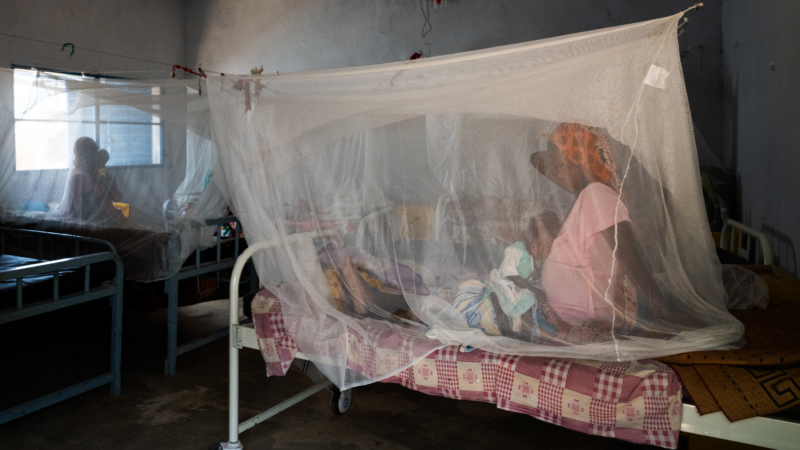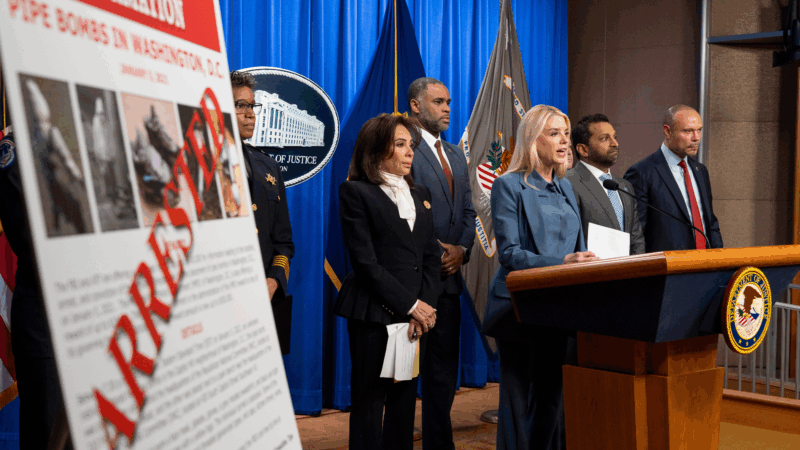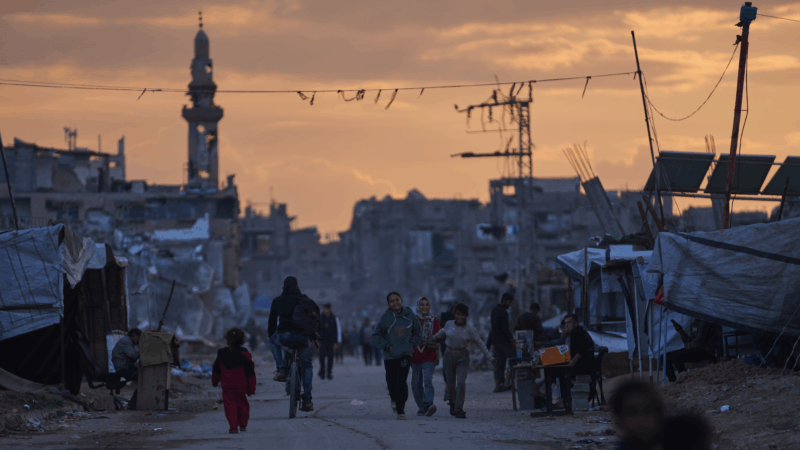Why midwives are worried
In June 2023, 27-year-old Fatmeh fled the violence of her home country of Sudan. She was pregnant and her husband and firstborn son had just been killed. Fatmeh and her two remaining children made their way into neighboring Chad as refugees.
When they arrived at a local health center, Fatmeh went into labor almost immediately.
“When she was giving birth there, she had absolutely nothing, not even a piece of cloth to welcome the baby,” says Ernestine Nedjoumbaye through an interpreter. She’s the midwife who accompanied Fatmeh during her delivery and was one of the first people to meet Fatmeh on the other side of her escape.
“I personally helped her by bringing clothing for the baby,” recalls Nedjoumbaye. “I spoke with her with words to try to console her. So I created a bond by helping her trust me.”
The role midwives play
Fatmeh is not alone in her vulnerability. The World Health Organization and United Nations say that Chad has the second-highest maternal mortality rate in the world — 1,063 mothers die per 100,000 live births because of pregnancy-related causes. That’s due, in part, to the hundreds of thousands of Sudanese refugees who have landed there after fleeing the violence back home. But the overall health system in Chad is fragile, and many Chadian women don’t have access to a safe and sterile place to deliver.
“And when they give birth at home,” says Nedjoumbaye, “there are more risks of infections and bleeding out, and more women die in childbirth.”
So she helps women by getting them to a health center or by bringing a mobile clinic to them. The result is simple — it keeps these mothers and their babies alive.
Nedjoumbaye is one of 300 midwives across Chad who work for the United Nations Population Fund (UNFPA), the U.N. agency responsible for reproductive and maternal health. “This is critical lifesaving work that they do,” says Yewande Odia, who leads the group in Chad. Indeed, the theme of this year’s International Day of the Midwife — May 5 — is “critical in a crisis.”
She says USAID has helped finance the midwife program and more. Last year, U.S. funding paid nearly half of the midwives and provided prenatal care to 100,000 pregnant women in Chad and safe deliveries to 26,000.
Who will pay their salaries?
Earlier this year, however, Secretary of State Marco Rubio announced the official cancellation of 5,200 USAID contracts worldwide, amounting to some 83% of the agency’s programs. That included $3 million that Odia was relying on, in part to pay her midwives.
“Losing the U.S. funding is huge,” she says. “The lack of midwives, the lack of social workers to support these women, to support these children means that women will die in childbirth. That’s the immediate impact.”
The USAID money to pay the midwives’ salaries ran out at the end of March. Odia says she found other funding sources to keep them paid through the end of May and that she and the U.N. continue to look for alternative sources of funding to manage the shortfall, including from the government of Chad. But she expects she’ll have to make some tough choices soon.
“We will have to prioritize,” Odia says. “Some things will have to go and some things we’ll have to do less of.”
One of the midwives whose job is on the line is Nedjoumbaye. The funding cuts have come at a time when she and other midwives have a different dream for their future. “We need opportunities to pursue our studies further and to advance with our work,” she says.
Nedjoumbaye has considered becoming a gynecologist. But without the funds to simply pay for her salary and the supplies she and the other midwives require to do their lifesaving work, she says they’re left with one overriding emotion.
“We’re worried,” she says.
Pipe bomb suspect told FBI he targeted U.S. political parties, memo says
The man accused of placing two pipe bombs in Washington on the eve of Jan. 6, 2021 told investigators someone needed to "speak up" for people who believed the 2020 election was stolen, prosecutors said Sunday.
Chinese military stages drills around Taiwan to warn ‘external forces’
The drills came after Beijing expressed anger at U.S. arms sales, and a statement by Japan's prime minister saying its military could get involved if China were to take action against Taiwan.
Trump and Netanyahu to meet in Florida at a crucial moment for the Gaza ceasefire
President Trump could use the face-to-face at his Mar-a-Lago estate to look for ways to speed up the peace process, as Israel's leader has been accused of not pushing his side to move fast enough.
‘Bomb cyclone’ forecasted to bring heavy snow, blizzard conditions and dangerous travel
A 'bomb cyclone' is intensifying severe winter weather for millions of people across the U.S. The system is expected to knock out power and disrupt holiday travel.
Russia sends 3 Iranian satellites into orbit, report says
The report said that a Russian rocket sent the satellites on Sunday from a launchpad in eastern Russia.
Viral global TikToks: A twist on soccer, Tanzania’s Charlie Chaplin, hope in Gaza
TikToks are everywhere (well, except countries like Australia and India, where they've been banned.) We talk to the creators of some of the year's most popular reels from the Global South.








